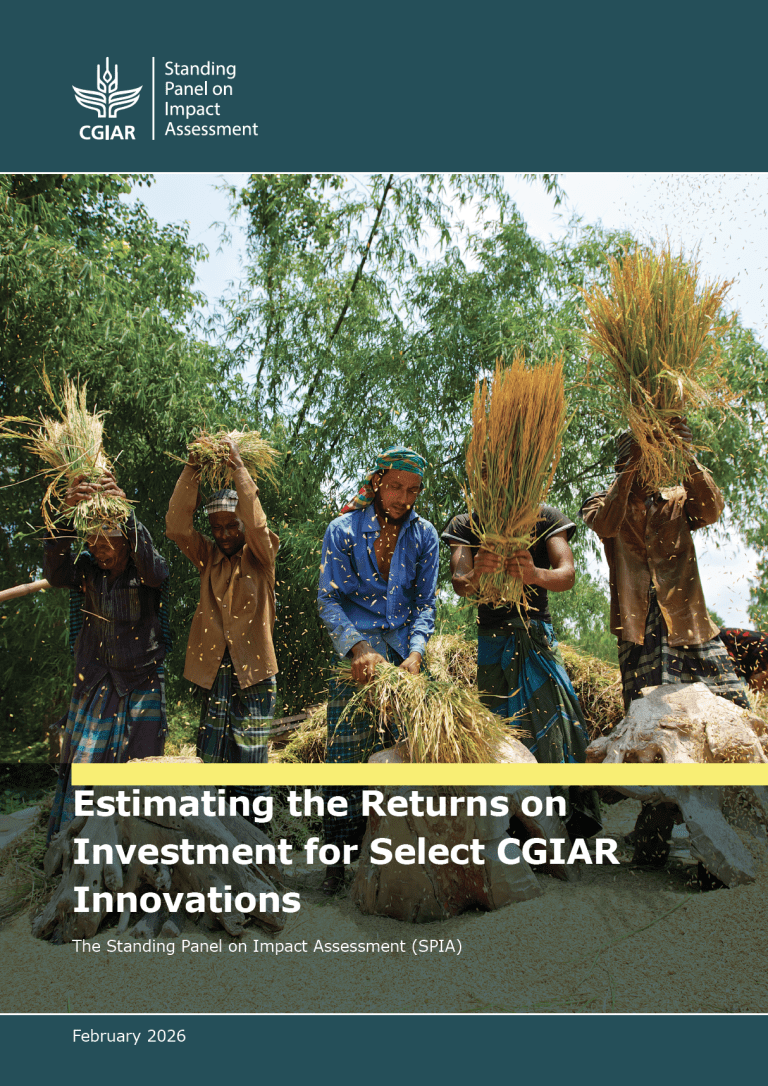Abstract
Over the past two decades, Vietnam’s GDP per capita has grown ninefold. Concurrently, its agricultural sector has transformed to a strong commercial orientation. At the same time that the share of agriculture in GDP fell from 24.5 percent to 12.6 percent, agricultural value-added grew sixfold from USD 7.5 bn to USD 46 bn (World Bank, 2022). This suggests that Vietnam could provide contemporary insights into agricultural innovation coinciding with – and possibly contributing to –economic growth.
Vietnam is also a high-priority country for CGIAR research. Since 2021, the Standing Panel on Impact Assessment (SPIA) has been conducting a country study of the impact of CGIAR-related agricultural innovations in Vietnam. As in the other countries where this country-level approach was pioneered and developed, this process began with desk research and key informant interviews to generate a stocktake or information about all CGIAR-related innovations that may have been disseminated or adopted at scale. From a longlist of 79 innovations across multiple domains, the SPIA Vietnam team found indications that 18 may have diffused at scale.
A key determinant of an innovation’s impact is its reach, or the number of individuals who adopt or otherwise benefit from it. To obtain high-quality estimates of the reach of CGIAR-related innovations in Vietnam, we have collaborated with the General Statistics Office (GSO) since 2022 to incorporate new modules into the annual, nationally representative Vietnam Household Living Standards Survey (VHLSS). In the VHLSS 2022, 32,340 rural households in 2,156 enumeration areas (EAs) were interviewed. The VHLSS sample follows a rotating panel design at the EA level, making it possible to build a panel of households over time. Newly integrated modules include questions designed to measure Vietnamese farmers’ adoption of a variety of different CGIAR-related innovations, comprising improved rice, cassava, and tilapia varieties, sustainable intensification practices in rice cultivation, and climate change adaptation and water-saving practices in rice and coffee. SPIA incorporated questions about 10 innovations in the VHLSS 2022, and this report presents our preliminary findings about 6 of these. Thus, this first report is a partial study of the reach of CGIAR in Vietnam, with a broader range of innovations to be covered in later rounds of survey data collection and reporting.
Citation
Kosmowski, F., Bach, T., Nguyen, O., Stevenson, J., Visaria, S. (2023). Preliminary Insights into the Adoption of CGIAR-Related Agricultural Innovations in Vietnam. Rome: Standing Panel on Impact Assessment (SPIA).
Author(s)
Frederic Kosmowski, Thao Bach, Oanh Nguyen, James Stevenson and Sujata Visaria


